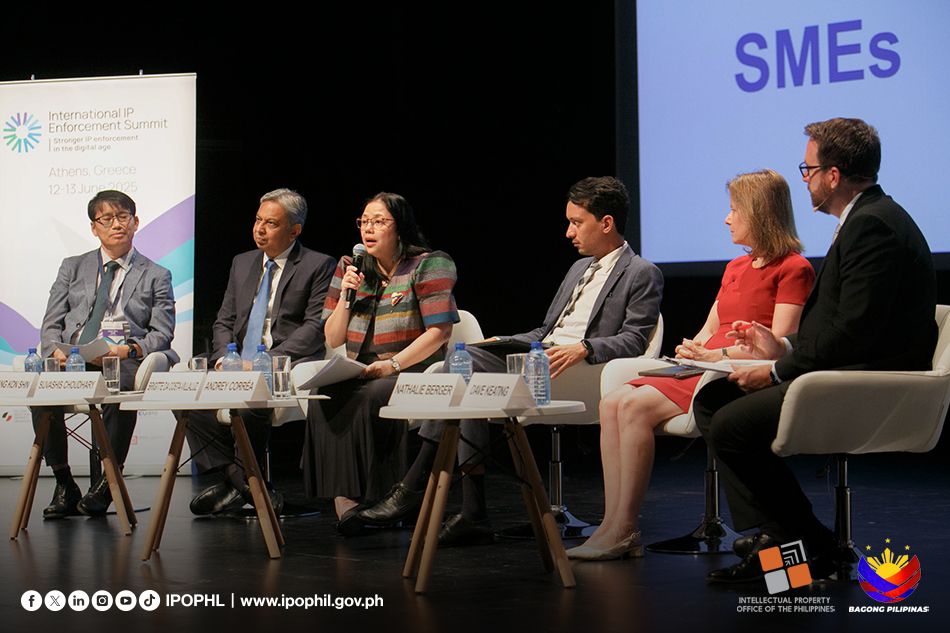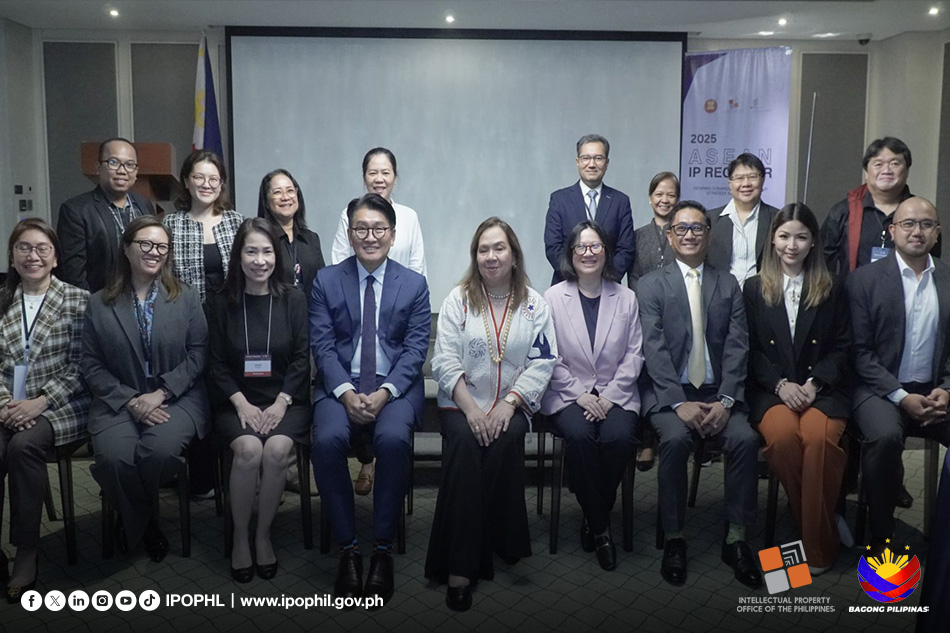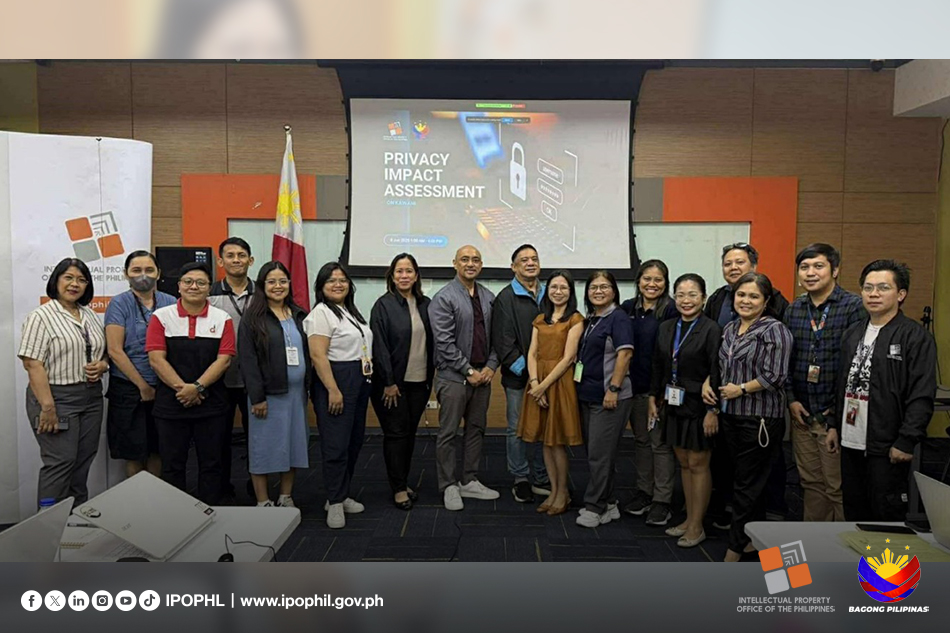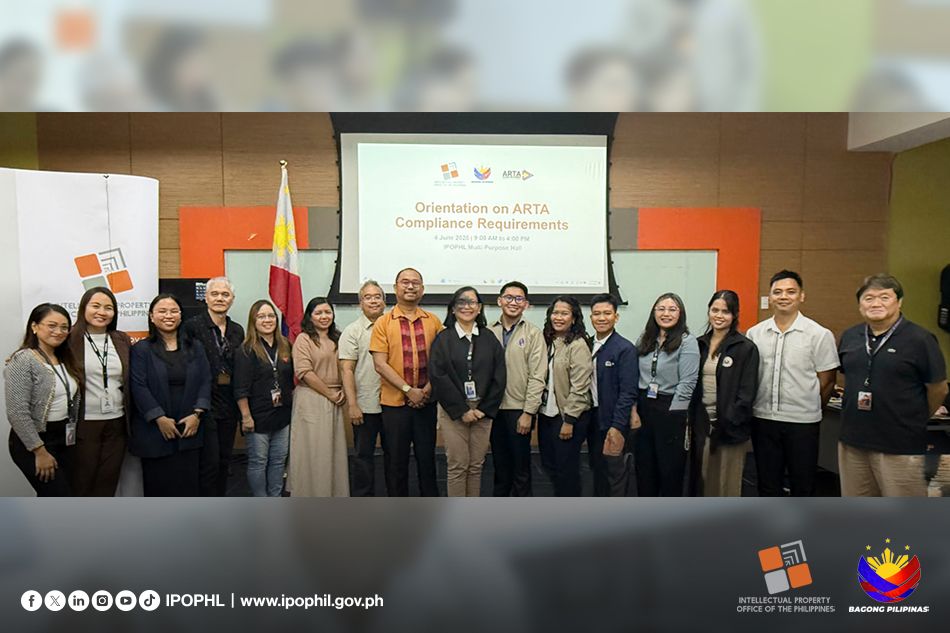
IPOPHL says IP can help university-industry collab gap, boost creative outputs in GII
September 27, 2021
The Intellectual Property Office of the Philippines (IPOPHL) has committed to intensify work in deepening the country’s use of intellectual property (IP), emphasizing that this can hike creative outputs and industry-academe collaborations that lead to science and technology development.
The statement follows the release last week of the Global Innovation Index 2021 where the University-Industry R&D Collaboration indicator nosedived by 13.8 points, suffering the 5th biggest decline among all indicators and contributing to the country’s slide by one spot to 51st.
IPOPHL Director General Rowel S. Barba said the figures show the continued lack of industry's appreciation of what higher education institutions (HEIs) can contribute, with the large perception that their R&D direction often does not intersect with industry needs.
Meanwhile, many university and college researchers still have reservations in working with companies for fear that their innovations will be stolen.
"In all of these, the IP system emerges as a solution," Barba said.
"Innovations with IP protection ensure their rightful innovators of a legal recourse if their works are taken in bad faith. This hence promotes a background of trust to spur much needed collaborations between industry and HEIs," he added.
Meanwhile, through IPOPHL's Innovation and Technology Support Office program, the private sector can easily select which universities or colleges they can work with.
"ITSO managers are trained to help innovators in their community use patent information and analytics in ensuring that their innovations are socially relevant and industrially applicable, one of the key criteria to secure a patent grant. So industry can choose from ITSOs' innovations, which patents or UMs they can use or improve on through a licensing deal or collaborate with them with the help of ITSOs' skills in patent mining," he added.
Industry members can also be assured of ITSOs' —— currently with 84 members ——vast experience in technology and innovation, given that their ITSO status can only be maintained if they can clinch a spot in the program’s clustering scheme or if they file a certain number of patents every year.
Trademarks post biggest gain in creative outputs
While Creative Outputs remained unchanged in score, Trademarks grew the biggest by 1.8 points while Industrial Designs (ID) grew slightly by 0.1. Both tempered the declines from weaker indicators such as Global Brand Value, which registered the third largest decline (18 points) among all indicators.
The GII measures the Trademarks indicators based on the number of classes specified in resident trademark applications while, in ID, the number of ID in a single application is counted.
However, Barba lamented the performance of the overall Creative Goods and Services pillar, which fell 2.3 points in score and eight rungs in rank.
"IPOPHL will continue to bolster creativity through copyright which gives high regard for originality. This element of originality to claim exclusive temporary rights will inspire people to create new and unique content that will attract many investments, in turn pushing more Filipino content to go global," Barba said.
The IPOPHL chief also encouraged developers to see the "enormous opportunities" in Mobile App Creation, which saw a 1.3 point increase.
Barba touted IPOPHL's intensified efforts in recent months to help local mobile app creators protect and strategically manage the many IPs in a mobile app, noting this will further improve the country’s GII rating for next year.
"Through IPOPHL's continuous efforts, we hope to contribute in regaining our upward momentum in the GII and alter the landscape of innovation and creativity for the benefit of all Filipinos," Barba said.
The GII is an annual report co-published by Cornell University, INSEAD and WIPO to help governments design policy responses to improve their innovation status.
The 2021 report is themed “Tracking Innovation through the COVID-19 Crisis,” where it was found that scientific output, R&D expenditures, IP filings and venture capital deals continued to grow globally despite adversities in the pandemic.

IPOPHL says IP can help university-industry collab gap, boost creative outputs in GII
September 27, 2021
The Intellectual Property Office of the Philippines (IPOPHL) has committed to intensify work in deepening the country’s use of intellectual property (IP), emphasizing that this can hike creative outputs and industry-academe collaborations that lead to science and technology development.
The statement follows the release last week of the Global Innovation Index 2021 where the University-Industry R&D Collaboration indicator nosedived by 13.8 points, suffering the 5th biggest decline among all indicators and contributing to the country’s slide by one spot to 51st.
IPOPHL Director General Rowel S. Barba said the figures show the continued lack of industry's appreciation of what higher education institutions (HEIs) can contribute, with the large perception that their R&D direction often does not intersect with industry needs.
Meanwhile, many university and college researchers still have reservations in working with companies for fear that their innovations will be stolen.
"In all of these, the IP system emerges as a solution," Barba said.
"Innovations with IP protection ensure their rightful innovators of a legal recourse if their works are taken in bad faith. This hence promotes a background of trust to spur much needed collaborations between industry and HEIs," he added.
Meanwhile, through IPOPHL's Innovation and Technology Support Office program, the private sector can easily select which universities or colleges they can work with.
"ITSO managers are trained to help innovators in their community use patent information and analytics in ensuring that their innovations are socially relevant and industrially applicable, one of the key criteria to secure a patent grant. So industry can choose from ITSOs' innovations, which patents or UMs they can use or improve on through a licensing deal or collaborate with them with the help of ITSOs' skills in patent mining," he added.
Industry members can also be assured of ITSOs' —— currently with 84 members ——vast experience in technology and innovation, given that their ITSO status can only be maintained if they can clinch a spot in the program’s clustering scheme or if they file a certain number of patents every year.
Trademarks post biggest gain in creative outputs
While Creative Outputs remained unchanged in score, Trademarks grew the biggest by 1.8 points while Industrial Designs (ID) grew slightly by 0.1. Both tempered the declines from weaker indicators such as Global Brand Value, which registered the third largest decline (18 points) among all indicators.
The GII measures the Trademarks indicators based on the number of classes specified in resident trademark applications while, in ID, the number of ID in a single application is counted.
However, Barba lamented the performance of the overall Creative Goods and Services pillar, which fell 2.3 points in score and eight rungs in rank.
"IPOPHL will continue to bolster creativity through copyright which gives high regard for originality. This element of originality to claim exclusive temporary rights will inspire people to create new and unique content that will attract many investments, in turn pushing more Filipino content to go global," Barba said.
The IPOPHL chief also encouraged developers to see the "enormous opportunities" in Mobile App Creation, which saw a 1.3 point increase.
Barba touted IPOPHL's intensified efforts in recent months to help local mobile app creators protect and strategically manage the many IPs in a mobile app, noting this will further improve the country’s GII rating for next year.
"Through IPOPHL's continuous efforts, we hope to contribute in regaining our upward momentum in the GII and alter the landscape of innovation and creativity for the benefit of all Filipinos," Barba said.
The GII is an annual report co-published by Cornell University, INSEAD and WIPO to help governments design policy responses to improve their innovation status.
The 2021 report is themed “Tracking Innovation through the COVID-19 Crisis,” where it was found that scientific output, R&D expenditures, IP filings and venture capital deals continued to grow globally despite adversities in the pandemic.







